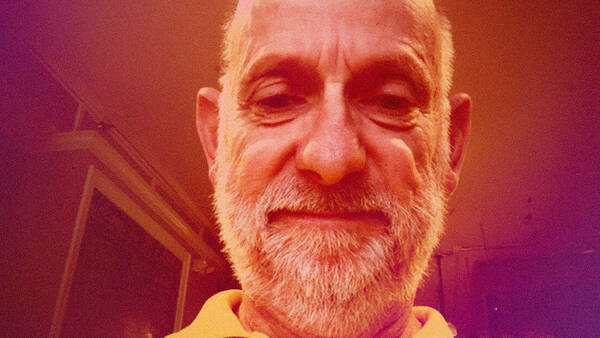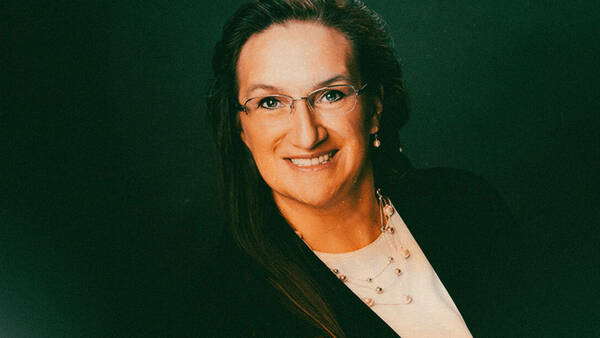As a student, Robert Latiff ’71, ’73 M.S., ’74 Ph.D. not only completed three degrees—a bachelor’s degree in physics followed by a master's and a doctorate in metallurgical engineering—but did so while a member of Notre Dame’s esteemed ROTC program. While he navigated Notre Dame’s challenging coursework like the rest of his peers, he was also preparing for what would ultimately become a military career of over 30 years.
Since retiring from the U.S. Air Force as a major general in 2006, where he worked on research and development of nuclear weapons, Latiff has not slowed down. He’s written two books: Future War describing emerging military technology and associated ethical and moral concerns, as well as a sequel, Future Peace, on how to ensure technology does not lead to war. He also teaches a renowned philosophy course at Notre Dame, The Ethics of Emerging Weapons Technology, focused on ethical challenges posed by the ongoing revolution in the technology of war. Latiff also received a grant that allowed him to spend a year on campus conducting research. It was an opportunity that not only helped Latiff develop professionally but allowed him to see Notre Dame like he never had before.
“I spent a year basically doing research and writing my second book, which came out in March. It was published by Notre Dame Press and that was a wonderful experience being able to just be on campus and …use the library and spend my time writing and researching and dealing with students and professors,” Latiff says. “I have a very long relationship with Notre Dame. It’s all good, frankly.”
While an undergraduate, Latiff’s decision to join the ROTC program was not a difficult one. “If it hadn’t been for the ROTC program, I would not have been able to go to Notre Dame,” Latiff says. “I came from a family that had a lot of uncles and aunts who served in World War II. So (serving in the) military was something that I probably wanted to do.”
Of course, ROTC has remained a vital part of the University’s history. Notre Dame established a potentially University-saving relationship with the program during the early stages of World War II. For most students, it is a four-year experience on campus followed by an active-duty commitment of at least four years. But Latiff has witnessed the lifelong benefits of the program not only as a student himself, but as a professor teaching many current members of Notre Dame’s Navy, Army, and Air Force ROTC units in his weapons ethics course. And what he sees continues to impress him.
“It's nice to see, at Notre Dame in particular, a substantial number of students from all kinds of different backgrounds who will choose to participate in ROTC,” Latiff says. “Some because they want the stability of ROTC, some because they like the military, some because they're … interested in and want to do something different with their lives.” Latiff added that each ROTC student he has had in his class has been “exceptional.”
Teaching The Ethics of Emerging Weapons Technologies course stems from Latiff’s firsthand experience. “I worked with nuclear weapons and with the research and development of all kinds of different things. And, in 2006, when I retired, [the United States] had just three years prior to that invaded Iraq. We were still reeling from 9/11 and so a lot of new weapons development was going on, and some of it began to worry me a little bit about the types of things that we were researching and the weapons that we were developing,” Latiff says.
The class discusses complex military issues, from the use of drones, cyberwarfare, and robotics, to data mining and soldier enhancement by prostheses or drugs, but its origin story is anything but complicated. “I actually just picked up the phone one day and called the Reilly Center [for Science, Technology, and Values] at Notre Dame and told them of my concerns. And so one thing led to another and they asked me if I'd be willing to help build a course, which I did. And then they asked me to step in and teach portions of it.”
Latiff’s work has not only inspired and challenged countless Notre Dame students for over a decade, but has received widespread critical acclaim. In addition to earning a spot on the 2013 What Would You Fight For? television campaign, the class was also featured in the New York Times in 2014. Latiff called both of those experiences “very nice,” but his main source of fulfillment is educating and empowering the next generation of leaders.
“NBC was very nice to work with,” Latiff reflects. “They interviewed me, (but also) the students, which I thought was really, really cool. The one young lady (Elizabeth Turino ’15) at the end of the video was a Naval ROTC student. And it turns out that she went on to work on a nuclear submarine.”
While the class was more or less the first of its kind, its popularity has made the topic much more prevalent on campuses across the country. “Since then, a lot of places have developed similar courses,” Latiff says. Not a bad second act to a distinguished career of over three decades of service.
“It was a really, really good experience,” Latiff concludes. “I just hope that the students continue to be as thoughtful and socially aware as they are now — and pay attention to all of these really, really important topics, of course.”



